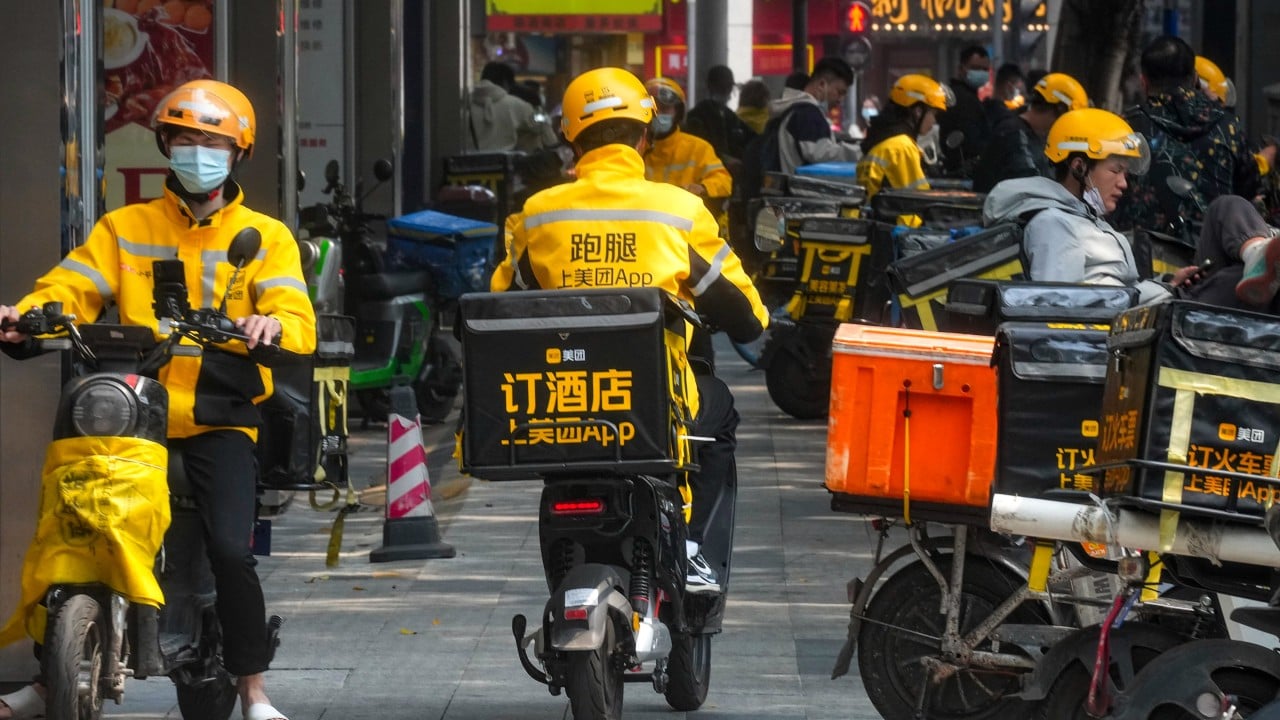China’s Ele.me joins Meituan, JD.com in vowing welfare coverage for armies of riders


In quick succession, three major online platforms in China – JD.com, Meituan and Ele.me – have unveiled plans to provide social insurance to their food-delivery couriers after years of being urged by the central government to enhance welfare coverage for the nation’s gig workers.
Roughly 200 million gig workers now make a living from temporary jobs that do not offer traditional employment contracts and associated benefits.
JD.com, the e-commerce giant that ventured into the food-delivery sector earlier this month, will gradually introduce China’s five types of social insurance and housing-fund benefits for its full-time delivery riders from March 1. Part-time riders will also receive accident insurance, as well as medical coverage.
In a statement on Wednesday, JD.com boasted that it was the first platform to offer such benefits to food-delivery riders. But on Thursday, Alibaba Group’s Ele.me delivery platform said it had been piloting social insurance programmes for its delivery riders in seven cities and provinces for the past year. Ele.me also took the opportunity to announce an expansion of work-injury insurance coverage to more regions. Alibaba owns the South China Morning Post.
Ele.me also said it “has invested more than 200 million yuan (US$27.5 million) to strengthen the protection of riders’ rights and interests” in the past year.
Following JD.com’s statement on Wednesday, Meituan, which dominates around 70 per cent of China’s food-delivery market, similarly announced a social insurance programme to cover “full-time and stable part-time riders”, starting from the second quarter of this year.
Source link



